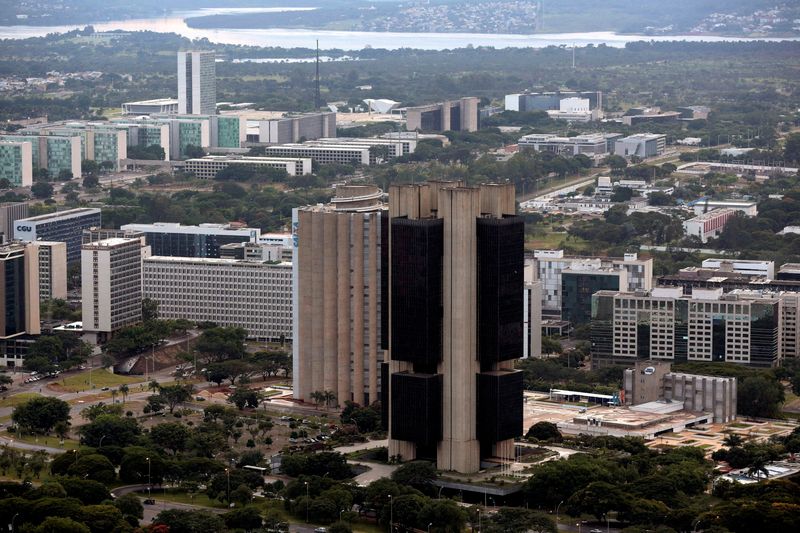BRASILIA (Reuters) - Brazil's markets fell on Thursday after the central bank cut rates in a split decision that saw appointees of the current government advocating for a larger reduction, sparking concerns of a forthcoming dovish monetary policy influenced by politics.
The Brazilian real weakened over 1% against the dollar while the yield curve on interest rate futures steepened, with longer-term futures jumping as much as 30 basis points.
Local benchmark stock index Bovespa fell more than 1%.
Brazil's central bank cut interest rates on Wednesday by 25 basis points to 10.50%, delivering a smaller reduction after six straight cuts of twice that size, with dissent from all four directors appointed by President Luiz Inacio Lula da Silva.
"Despite the decision being more hawkish, the market is already starting to anticipate what the new board would look like next year: in theory, a more dovish composition," said Daniel Leal, fixed income strategist at BGC Partners (NASDAQ:BGC) and a former Treasury analyst.
"Combined with the already announced fiscal concerns, especially with the floods in Rio Grande do Sul, which could pave the way for further spending, the market has entered risk aversion mode," he added.
Finance Minister Fernando Haddad said he would comment on the decision only after the meeting minutes are released, which is scheduled to happen next Tuesday.
He told a news conference that the "technical debate" regarding the central bank's decision was "natural".
FUTURE BOARD
Bank of America stressed in a note to clients that the minutes of the decision could clarify the rationale behind the split decision. However, it already anticipated a deterioration in inflation expectations for 2025.
These expectations have been increasing in recent weeks, and policymakers cited them as one factor behind higher uncertainties that ultimately justified the slower easing pace.
Many associate this deterioration with doubts about a politically-driven central bank once governor Roberto Campos Neto ends his term in December, under an autonomy law passed in 2021. Campos Neto was chosen by former right-wing president Jair Bolsonaro.
From then on, the board members appointed by leftist Lula, who assumed his third non-consecutive term with strong criticism of the tight monetary policy, will have the majority in the nine-member rate-setting committee.

Economist Tony Volpon, a former central bank director, wrote on X that Wednesday's policy decision was worse than a unanimous vote for a larger cut.
"Everyone loses: the 'hawks' who wanted to anchor expectations and the 'doves' who, as they will soon be the majority, will be entering power with a credibility deficit," he said.